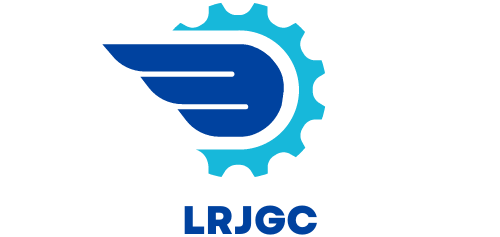Finding the right construction workers can feel like searching for a needle in a haystack—if the haystack were made of concrete and the needle was on a lunch break. With projects on the line and deadlines looming, hiring skilled labor is crucial. But how do you sift through the sea of candidates without losing your sanity—or your budget?
How To Hire Construction Workers
Hiring the right construction workers requires an understanding of specific project needs. Assessing these needs helps streamline the recruitment process.
Assessing Project Requirements
Each construction project varies greatly in scope and complexity. Considering project timelines is essential; tight deadlines might necessitate hiring more workers simultaneously. Budget constraints also play a role; they dictate how much can be spent on labor. Evaluating the project’s goals and expected outcomes provides clarity on required worker numbers. Ignoring these aspects can lead to hiring inefficiencies.
Determining Skill Sets Required
Various projects demand different skill sets from construction workers. Identifying necessary skills ensures that candidates match the specific tasks at hand. Experience with specific materials or equipment often plays a crucial role in success. Understanding whether the project requires general labor or specialized skills, such as electrical or plumbing expertise, allows for better-targeted searches. Failing to define these skills can result in hiring less qualified workers, ultimately impacting project quality and efficiency.
Sourcing Construction Workers

Finding skilled construction workers requires a strategic approach. Focus on identifying the best methods to reach qualified candidates.
Utilizing Job Boards and Recruitment Agencies
Job boards serve as an effective platform for sourcing construction workers. Websites like Indeed and Monster attract a wide range of candidates. Recruitment agencies specialize in identifying skilled labor tailored to specific project needs. They streamline the vetting process, ensuring that only qualified applicants reach employers. Hiring managers can benefit from using targeted filters on these platforms to find candidates. Many companies also turn to consultancy for construction jobs to gain access to pre-screened talent and expert hiring guidance. Posting detailed job descriptions increases the chances of attracting suitable workers. Posting detailed job descriptions increases the chances of attracting suitable workers.
Networking Within the Industry
Networking within the construction industry provides valuable leads on potential hires. Attending trade shows and industry conferences fosters connections among professionals. Building relationships with local trade schools often yields access to emerging talent. Referrals from existing employees can identify skilled candidates as well. Participating in community projects enhances visibility and reputation, attracting skilled workers. Engaging in online forums and social media groups also expands the recruitment reach. Frequent interaction with these networks creates a pipeline for future hires.
Evaluating Candidates
Evaluating candidates requires a systematic approach to ensure the right fit for construction projects. Focusing on skills, experience, and compatibility with project needs is essential.
Conducting Interviews Effectively
Prepare targeted questions that address the specific roles and responsibilities of the position. Listen carefully to responses that reveal candidates’ problem-solving abilities and work experience. Assess their understanding of safety protocols, construction techniques, and teamwork dynamics. Use practical scenarios to gauge how candidates handle on-site challenges. Encouraging candidates to provide examples strengthens the evaluation process.
Checking References and Credentials
Request references from previous employers to validate candidate work history and performance. Reach out to contacts who can provide insight into the candidate’s work ethic, reliability, and skill proficiency. Confirm any licenses or certifications relevant to the construction field. Analyze feedback collected from references to gauge overall suitability for the role. Doing thorough checks reduces hiring risks and enhances project outcomes.
Onboarding and Training
Effective onboarding and training processes are essential for integrating new construction workers into a team. These measures enhance productivity while ensuring safety and compliance with best practices.
Preparing a Comprehensive Orientation
An orientation program sets the foundation for new hires. This program should cover company policies, safety protocols, and project expectations. Engaging existing team members during orientation promotes a welcoming atmosphere. Facilitating a walkthrough of the job site allows new employees to get familiar with their work environment. Providing hands-on demonstrations on equipment usage gives practical experience right from the start. Feedback sessions at the end of orientation help identify any gaps in understanding.
Implementing Ongoing Training Programs
Ongoing training programs reinforce skills and introduce innovative practices. Regular workshops on safety updates, technology advancements, and new equipment are vital. Encouraging team participation fosters a culture of continuous learning. Designating experienced staff as mentors can help new employees adapt more quickly. Evaluating training effectiveness through performance assessments ensures programs meet staff needs. Utilizing online platforms for training modules enhances flexibility, allowing workers to learn at their own pace while balancing project demands.
Retaining Skilled Workers
Retaining skilled construction workers requires targeted strategies that foster loyalty and enhance job satisfaction. Prioritizing a supportive work environment significantly contributes to employee retention.
Creating a Positive Work Environment
A positive work environment attracts and retains talent effectively. Fostering open communication builds trust among team members. Employees thrive when they feel valued and included in decision-making processes. Safety must always be a priority on construction sites, as adherence to safety protocols cultivates a culture of care. Providing opportunities for team-building activities strengthens relationships and encourages collaboration. Encouraging feedback from workers can help identify areas for improvement, making them feel heard and valued.
Offering Competitive Compensation and Benefits
Competitive compensation packages play a critical role in employee retention. Offering wages that align with industry standards demonstrates value for workers’ skills and contributions. Comprehensive benefits, including health insurance and retirement plans, enhance job appeal. Employers could consider performance bonuses to reward exceptional work, motivating employees to excel. Flexible work schedules can also accommodate individual needs, fostering a healthy work-life balance. Providing opportunities for career growth through training and advancement options attracts ambitious professionals.
Conclusion
Hiring skilled construction workers is a multifaceted process that requires careful planning and execution. By understanding specific project needs and identifying the right skill sets, employers can streamline their recruitment efforts. Utilizing various sourcing methods and engaging with industry networks enhances the chances of finding qualified candidates.
Once hired, effective onboarding and ongoing training are vital for integrating new workers into the team. Retaining talent hinges on creating a positive work environment and offering competitive compensation packages. By prioritizing these strategies, companies can build a reliable workforce that meets project demands and contributes to overall success in the construction industry.

